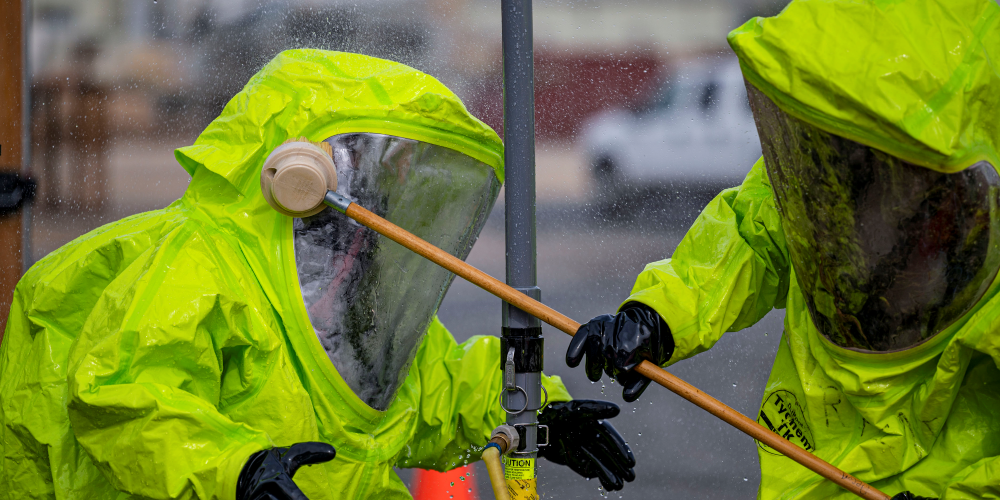Newly developed synthetic polymer enzymes may provide an effective alternative to harsh chemical warfare agent (CWA) decontaminants for Joint Force equipment, such as motor vehicles and unmanned sensors. After military equipment is contaminated with CWAs, Warfighters must rapidly and thoroughly decontaminate it to reduce mission-oriented protective posture, maintain combat power, and continue their mission. Current decontamination processes use strongly reactive chemicals, such as caustics or bleach, to neutralize and destroy CWAs on equipment surfaces. While this process effectively destroys CWAs, the harsh decontaminants can damage or corrode equipment material and impact mission performance. Because of this adverse consequence, the Joint Force seeks decontaminants that have no negative impact on equipment materials but possess the capability to effectively neutralize a broad range of CWAs.
Natural protein enzymes are one class of decontaminant that is gentle on materials but also able to effectively destroy CWAs. Naturally occurring protein enzymes, called organophosphates, degrade nerve agents through catalysis, where one protein molecule can neutralize many agent molecules. However, to function efficiently as decontaminants, natural organophosphates must work in environments with narrow temperature ranges (near 98.6 degrees F) and need enough water to keep the surface wet during decontamination. Natural organophosphates are poor candidates for field decontamination because nerve agents don’t dissolve well in water and operational environments vary widely in temperature.
The Defense Threat Reduction Agency’s (DTRA) Chemical and Biological Technologies Department in its role as the Joint Science and Technology Office (JSTO) for chemical and biological defense, an integral component of the Chemical and Biological Defense Program (CBDP), invested with the University of California, Berkeley to develop novel, robust synthetic decontaminants that mimic natural biological protein enzyme structure and function.


